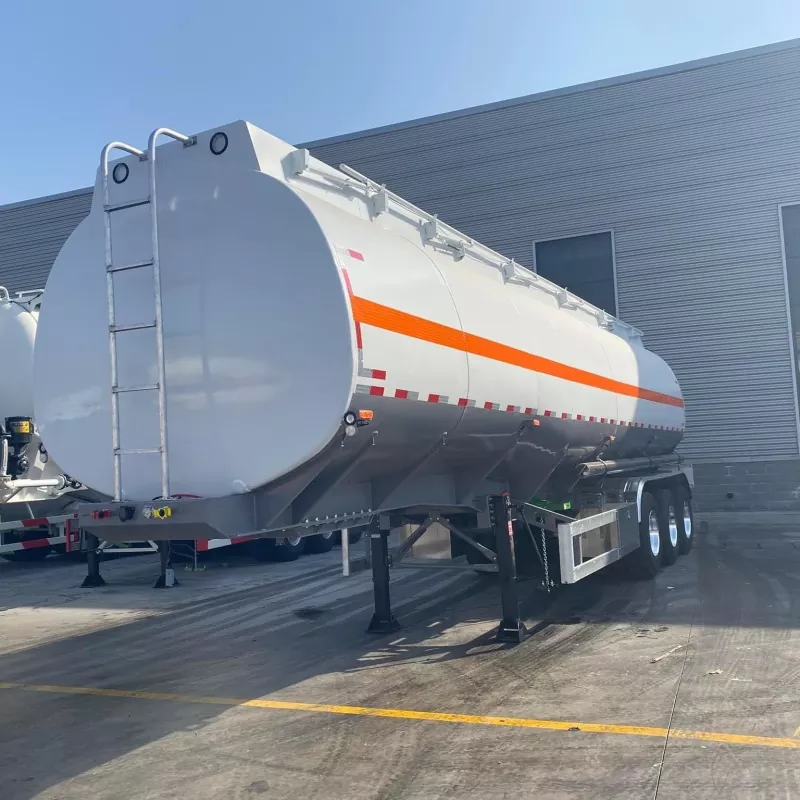How to Choose the Right Fuel Tank Trailer for Your Needs
2025-03-07
Selecting the right fuel tank trailer is essential for ensuring the safe, efficient, and cost-effective transportation of fuel. With so many different models and features available, it can be overwhelming to decide which one is best suited for your specific business or operation. In this blog, we’ll guide you through the factors to consider when purchasing a fuel tank trailer, ensuring that you make the best choice for your needs.

Key Considerations When Choosing a Fuel Tank Trailer
1. Capacity Requirements
One of the first things to consider when selecting a fuel tank trailer is the amount of fuel you need to transport. Fuel tank trailers come in various sizes, typically ranging from 2,000 to 12,000 gallons. Consider your typical transportation needs and the frequency of deliveries. A larger tank trailer may be more cost-effective for large-scale operations, while a smaller tank might suffice for local deliveries.
2. Material and Construction
The material used to construct the fuel tank trailer is critical for durability, weight, and resistance to corrosion. The most common materials used are:
- Aluminum – Lightweight and resistant to corrosion, but may not be as durable as steel under certain conditions.
- Stainless Steel – Strong, durable, and corrosion-resistant, but heavier than aluminum.
- Carbon Steel – Heavier and less resistant to corrosion but still commonly used for its affordability and strength.
Choose a material that best fits your needs and the environmental conditions in which the trailer will be used.
3. Compartment Design
Fuel tank trailers can be single or multi-compartment, depending on whether you need to transport multiple types of fuel. Multi-compartment trailers allow for the transport of various fuels like diesel, gasoline, or kerosene without mixing them. If you frequently transport different types of fuel, investing in a multi-compartment trailer could be more economical.
4. Safety Features
Fuel tank trailers must adhere to strict safety standards. When choosing a trailer, ensure it comes with essential safety features such as:
- Flame arrestors to prevent the spread of fire.
- Overfill protection systems to prevent spills.
- Pressure relief valves to control internal pressure.
- Grounding systems to prevent static electricity build-up.
These features will not only keep the fuel secure but also ensure the safety of those handling the trailer.
5. Pump and Loading/Unloading Systems
The pump system is crucial for ensuring that fuel is efficiently transferred to and from the trailer. Some trailers have pumps integrated into the design, while others may require an external pump. Consider the volume of fuel you need to transport and ensure that the pump system is powerful enough to handle your needs.
6. Compliance and Certification
Ensure that the fuel tank trailer meets the regulatory standards set by transportation authorities. This includes compliance with safety standards, environmental regulations, and proper certifications for transporting hazardous materials. Check if the trailer is certified by organizations such as the Department of Transportation (DOT) or other regional regulatory bodies.
7. Cost and Budget
While it’s tempting to go for the cheapest option, it's essential to weigh the initial cost against long-term benefits. Consider factors such as durability, fuel efficiency, safety features, and overall maintenance costs when setting your budget. A higher initial investment in a quality trailer may save you money in repairs and maintenance in the long run.
Conclusion
Choosing the right fuel tank trailer involves carefully considering your transportation needs, safety requirements, and budget. Whether you're a small business looking for a cost-effective solution or a large company requiring high-capacity trailers, there’s a fuel tank trailer designed to meet your needs. By evaluating the factors discussed in this blog, you’ll be able to make an informed decision that enhances the safety, efficiency, and profitability of your operations.


